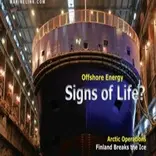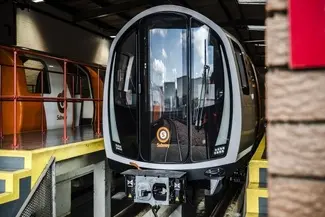IMO Sec-Gen hails industry progress with BWM imlementation

On the occasion of the BWM Convention entering into force today, 8 September 2017, IMO Secretary-General Kitack Lim noted that this is a landmark step towards environmental protection, as it means that shipping community is now addressing what has been recognized as one of the greatest threats to the ecological and the economic well-being of the planet.
The International BWM Convention, adopted in 2004 by IMO, requires ships to manage their ballast water to remove, render harmless, or avoid the uptake or discharge of aquatic organisms and pathogens within ballast water and sediments.
“This is a landmark step towards halting the spread of invasive aquatic species, which can cause havoc for local ecosystems, affect biodiversity and lead to substantial economic loss,” said Mr Lim. “Invasive species are causing enormous damage to biodiversity and the valuable natural riches of the earth upon which we depend. Invasive species also cause direct and indirect health effects and the damage to the environment is often irreversible,” said Mr Lim.
The Ballast Water Management Convention requires all ships in international trade to manage their ballast water and sediments, according to a ship-specific ballast water management plan. All ships must carry a ballast water record book and an International Ballast Water Management Certificate.
“The entry into force of the Ballast Water Management Convention will not only minimize the risk of invasions by alien species via ballast water, it will also provide a global level playing field for international shipping, providing clear and robust standards for the management of ballast water on ships,” he added.
As reminded, initially, there will be two different standards:
The D-1 standard requires ships to exchange their ballast water in open seas, away from coastal waters. Ideally, this means at least 200 nautical miles from land and in water at least 200 metres deep. By doing this, fewer organisms will survive and so ships will be less likely to introduce potentially harmful species when they release the ballast water.
D-2 is a performance standard which specifies the maximum amount of viable organisms allowed to be discharged, including specified indicator microbes harmful to human health.
New ships must meet the D-2 standard from today, while existing ships must initially meet the D-1 standard. An implementation timetable for the D-2 standard has been agreed, based on the date of the ship’s International Oil Pollution Prevention Certificate (IOPPC) renewal survey, which must be undertaken at least every five years.
Eventually, all ships will have to conform to the D-2 standard. For most ships, this involves installing special equipment. To date, more than 60 ballast water treatment systems have been given type approval.
IMO has been addressing the issue of invasive species in ships’ ballast water since the 1980s and has worked with the development of guidelines for the uniform implementation of the Convention and to address concerns of various stakeholders, such as with regard to the availability of ballast water management systems and their type approval and testing.
Since 2000, the Global Environment Facility (GEF)-United Nations Development Program (UNDP)-IMO GloBallast Partnerships Project also assisted developing countries to reduce the risk of aquatic bio-invasions through building the necessary capacity to implement the Convention.
The BWM convention to date has 63 Contracting Parties, representing 68.51% of world merchant shipping tonnage.















![AIRBUS A380 [MORE THAN 600 PASSENGER’S CAPACITY PLANE]](https://cdn.tinn.ir/thumbnail/4jCp4EQvCU0b/IjHVrSYQrIAqIzXuTzADR7qLYX4idQT4nfq__26E5SCUPLMqfhWkWajvuO9Wfq1ql1TjV4dhkrHliNQU82kMpo2NNftT_NGEwHc9KXtN_rk731bmifa2IQ,,/airbus-a380-structure1.jpg)

Send Comment